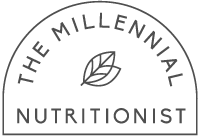How to lose weight after having a baby
Written by Hannah Abdulla, BS
Why Do You Gain Weight During Pregnancy?
Pregnancy is one of the most dramatic events your body will go through, because of this big changes will happen to your body over the course of nine months and even postpartum. One of those changes will be weight gain, which is normal and necessary. One of the reasons our body gains weight during pregnancy is because it is building fat stores to pull from during breastfeeding and recovery. There is a more rapid increase in weight near the end of pregnancy when the body is needing more fluid for the amniotic sac, the placenta and the baby’s circulation.
What Role Do Hormones Play in Pregnancy?
If weight loss after pregnancy is desired be sure to consider the role hormones play. Research tells us the body can take up to six months for hormones to regulate after giving birth. These hormones play a role in not only your weight, but in your mental and emotional status. Changes in mental and emotional status will impact how we feel daily, our motivation levels, our self-confidence, and much more. It is normal to experience these changes postpartum and important to show yourself compassion.
Your postpartum hormones will change in stages. Immediately postpartum you can expect swinging hormones as estrogen and progesterone plunge and prolactin and oxytocin surge. At approximately six weeks postpartum one may experience symptoms of postpartum depression as some of the pregnancy hormones that make us feel good continue to decrease. By three months postpartum hormone levels are finally beginning to stabilize to pre-pregnancy levels. If you have decided to breastfeed you will experience significant hormonal changes around the six-month mark. This is due to baby’s milk consumption decreasing as solid foods are being introduced. When this happens you can expect a decrease in the hormone prolactin which is responsible for breastmilk production. If you chose not to breastfeed by six months postpartum you can expect hormone levels to be close to pre-pregnancy levels.
What Can You Do to Start Feeling Like Yourself Again?
Adequate Nutrition
If you choose to breastfeed, grab an extra snack each day because your body needs approximately 300 extra calories for adequate milk supply.
A properly balanced diet is crucial to keep your energy levels up. A balanced meal should contain a protein, a produce, a grain, and sometimes a dairy. Check out MyPlate.gov for representation of a balanced plate along with recipe ideas.
If you are breastfeeding, lactation experts recommend you listen to your body’s hunger cues. If you are hungry you should eat.
Now is not the time for extreme dieting or calorie restrictions. Even if you are not breastfeeding, your body is in recovery, and you need adequate nutrition.
Make sure you are consuming plenty of fluids. If you are breastfeeding, you may feel thirstier than usual. Be sure to have a bottle of water next to you during nursing sessions.
If you have questions about nutrition during this time meet with a registered dietitian. A dietitian will provide you with science-based nutrition information that is safe for you and baby.
Plenty of Rest
Rely on the supportive people in your life. Allow yourself to ask and be open to help. This is essential to your physical, mental, and emotional well-being.
Limit visitors so you can acclimate to your new life without feeling the pressure of hosting guests. If you choose to have visitors, try to sneak off for a nap while they are over and spending time with the new baby.
Nap when your baby naps even if it is only a few minutes here and there.
Try to get outside for sunlight and fresh air. The National Institute of Health tells us that sunlight can improve your quality of sleep and sleep patterns.
Physical Activity
For healthy postpartum weight loss, you can expect to lose approximately 13 pounds immediately after delivery, an additional 5-15 pounds over the course of the first six weeks and up to a year to lose the rest.
Parent and baby fitness classes give you the opportunity to exercise while bonding with your baby.
For healthy pregnancies and vaginal deliveries, The American College of Obstetricians and Gynecologists states that by week six postpartum 150 minutes of exercise per week is a good goal. For pregnancies with complications or caesarean births you should check with your doctor prior to exercising.
Grab your stroller and head outside to take a walk with the baby. Not only will you be getting exercise, but you’ll get fresh air and sunlight.
Sources:
www.parents.com/pregnancy/my-body/postpartum/postpartum-hormone-changes/
www.ncbi.nlm.nih.gov/books/NBK279575/
www.ncbi.nlm.nih.gov/pmc/articles/PMC4241899/
